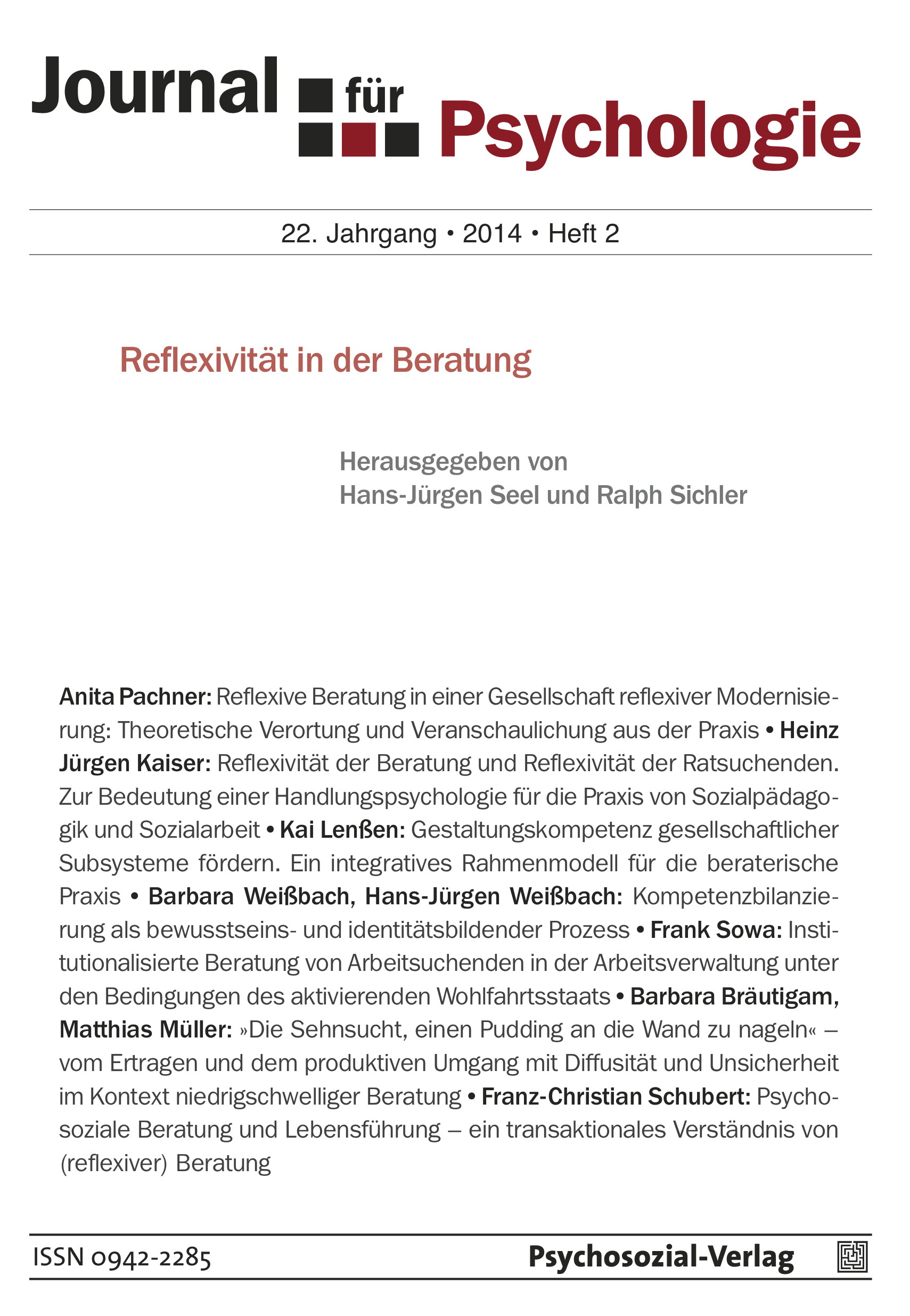Reflexive Counseling in a Society of Reflexive Modernization: Theoretical Conceptualization and Illustration related to Practice
Keywords:
reflexivity, (self‑)reflection, reflexive modernization, counseling, adult educationAbstract
Abstract:The article addresses the question of the meaning of reflexive counseling in a society of reflexive modernization. It does so by examining theoretical findings in sociology and reflexive social psychology for a diagnosis of times of reflexive modernization. Systems theory and systemic-constructivist pedagogy provide definitions concerning the constructs of reflexivity and reflection. In this connection, the practical area of counseling and especially of counseling in continuing adult education is illuminated. Finally, the results of the theoretical analysis are complemented by the point of view of continuing education practitioners. This is accomplished by introducing initial results of a study which reconstructs reflexivity and reflection in a grounded manner from the statements of practitioners of adult education with an emphasis on counseling. The article reveals that counseling has an important supportive function in a society that is increasingly characterized by individualization and uncertainty, and that reflexivity and reflection are crucial conditions for learning and change.Downloads
Published
2014-01-01
How to Cite
Pachner, Anita. 2014. “Reflexive Counseling in a Society of Reflexive Modernization: Theoretical Conceptualization and Illustration Related to Practice”. Journal für Psychologie 22 (2). https://journal-fuer-psychologie.de/article/view/351.
Issue
Section
Schwerpunkt
License
This license allows private use and unmodified distribution, but prohibits editing and commercial use (further information can be found at: https://creativecommons.org/licenses/by-nc-nd/4.0/).
The terms of the Creative Commons licence only apply to the original material. The reuse of material from other sources (marked with a reference) such as charts, illustrations, photos and text extracts may require further permission for use from the respective copyrights holder.



